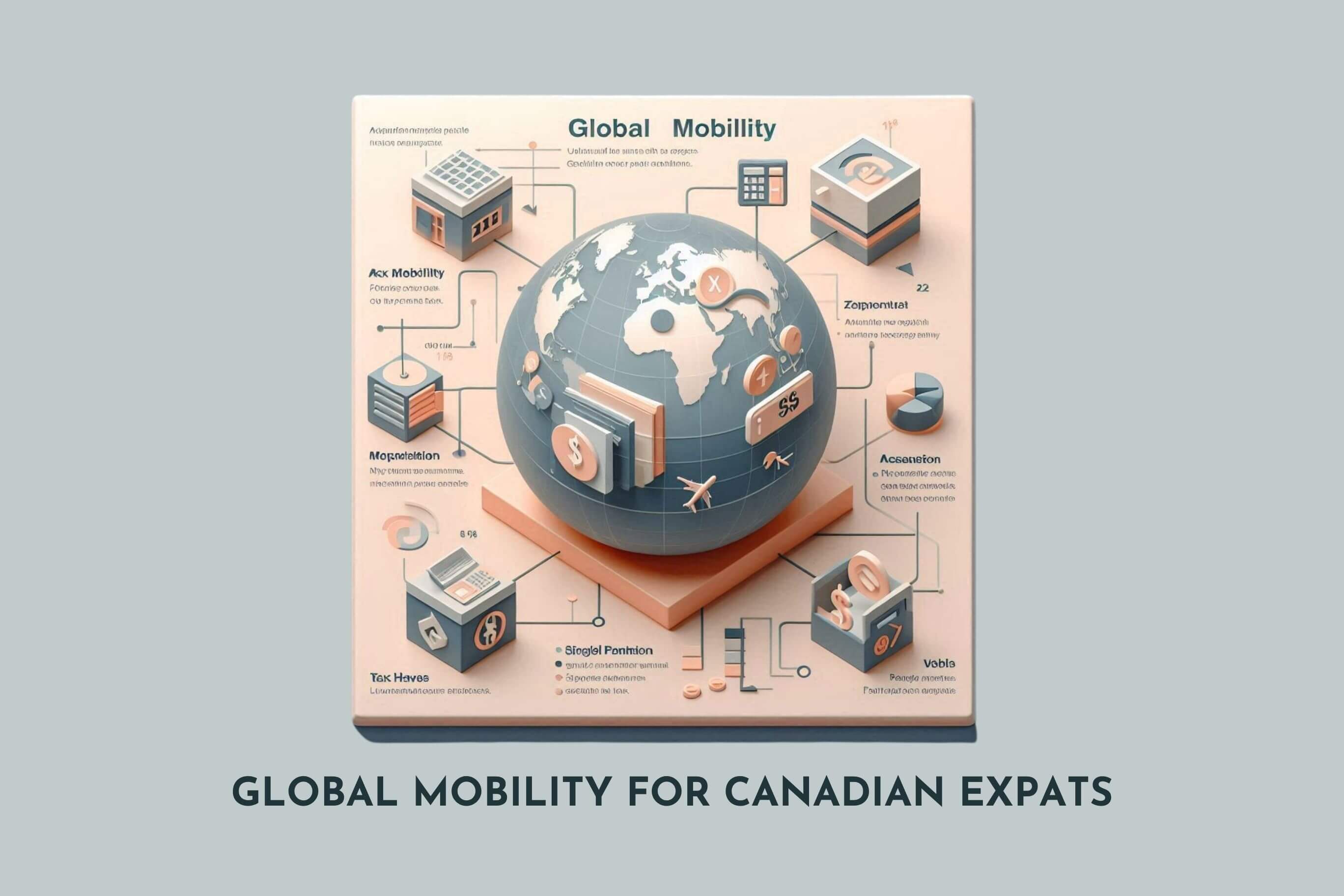
Global Mobility for Canadian Expats: Navigating Tax Havens
As a Canadian expat working in a tax haven, you’re part of
a growing global workforce. Whether you’re in Dubai, the Cayman Islands, or
another tax-friendly location, understanding the tax implications is essential.
In this article, we’ll explore key considerations and strategies for Canadian
expats navigating tax havens.
Key Takeaways
- Canadian
expatriates working in tax havens face unique tax challenges.
- Proper
planning and understanding of tax rules are crucial to minimize negative
implications.
- Consult
with experts to manage tax compliance and optimize your financial
situation.
1. Tax Basics for Canadian Expats
Basis of Taxation
- Canadian
residents are subject to worldwide income taxation.
- Non-residents
are taxed only on Canadian-sourced income.
- Tax
treaties play a crucial role in determining which country has the right to
tax specific income.
Other Taxes
- Besides
income tax, consider other taxes like property tax, sales tax, and social
security contributions.
- Some
tax havens have no personal income tax, making them attractive for expats.
2. Tax Equalization and Tax Protection
Tax Equalization
- Employers
use tax equalization to ensure expats pay the same tax as they would in
their home country.
- The
company covers any additional tax liability due to the host country’s
higher rates.
- Expats
receive net pay equivalent to what they would earn at home.
Tax Protection
- Under
tax protection, expats pay tax based on their home country’s rules.
- The
company reimburses any extra tax paid due to the host country’s higher
rates.
- A
global mobility tax advisor helps with claims and reconciliation1.
Table 1: Tax Havens Comparison
|
Tax Haven |
Income Tax Rate |
Property Tax |
Sales Tax |
Social Security |
|
Dubai |
0% |
Low |
5% VAT |
None |
|
Cayman Islands |
0% |
None |
None |
None |
Table 2: Key Tax Considerations
|
Consideration |
Action Steps |
|
Tax Residency |
Understand your tax residency status. |
|
Tax Treaty Benefits |
Leverage tax treaties to avoid double taxation. |
|
Reporting Obligations |
Comply with reporting requirements in both countries. |
|
Investment Strategies |
Optimize investments based on tax implications. |
|
Social Security Agreements |
Check if Canada has a social security agreement with the
host country. |
|
Currency Exchange |
Be aware of exchange rate fluctuations and their impact
on income. |
3. Tax Planning Strategies
a. Residency Planning
- Residency
Status: Understand your tax residency
status in both Canada and your host country. This determines which country
has the right to tax your income.
- Split-Year
Rules: Some countries have split-year
rules, allowing you to be a tax resident in both your home country and the
host country during the year of relocation. Leverage this to your
advantage.
b. Investment Optimization
- Tax-Efficient
Investments: Choose
investments that minimize tax implications. Consider tax-free savings
accounts (TFSAs) and other tax-efficient vehicles.
- Currency
Risk: Be aware of exchange rate
fluctuations. Currency risk can impact your income and investments.
c. Retirement Planning
- Pension
Contributions: Understand
how pension contributions work in your host country. Some tax havens offer
attractive pension schemes.
- Social
Security Agreements: Check
if Canada has a social security agreement with your host country. This
affects your entitlement to benefits.
4. Practical Tips for Canadian Expats
a. Document Everything
- Keep
detailed records of your financial transactions, tax filings, and
correspondence with tax authorities.
- Consult
with a tax advisor to ensure compliance with reporting requirements.
b. Seek Professional Advice
- Global
Mobility Tax Advisor: Engage
a tax advisor specializing in expatriate taxation. They can guide you
through complex tax rules.
- Legal
Counsel: Consult legal experts to
understand local laws and regulations.
c. Stay Informed
- Tax
laws change frequently. Stay updated on tax reforms and adjust your
strategies accordingly.
- Attend
seminars, webinars, and workshops related to expat taxation.
Conclusion
As a Canadian expat working in a tax haven, you have a
unique opportunity to optimize your financial situation. Remember these key
takeaways:
- Understand
Tax Basics: Know the rules of taxation in
both your home country (Canada) and the host country (e.g., Dubai).
Consider tax treaties and reporting obligations.
- Tax
Equalization and Protection: Work
with your employer to ensure fair taxation. Seek professional advice to
manage tax compliance.
- Strategize: Plan
your residency status, optimize investments, and consider retirement
planning. Stay informed about tax law changes.
- Document
Everything: Keep detailed records and consult
experts for personalized guidance.
Remember, proactive planning and expert advice are your best allies in navigating the complexities of global mobility. Safe travels and successful tax planning!
ASAN Can Help
Empower your financial future with ASAN's expert guidance on Global Taxation, aligning investments with your goals for true financial freedom.
Ready to take the next step?
Contact Us
📞 Phone: +1(613)-981-7097
🌐 Website: asangroupinc.com
Disclaimer:
The information provided in this blog is intended for general guidance and informational purposes only and should not be considered as professional accounting, audit, or assurance advice. Please consult with a certified professional for specific advice tailored to your situation.

